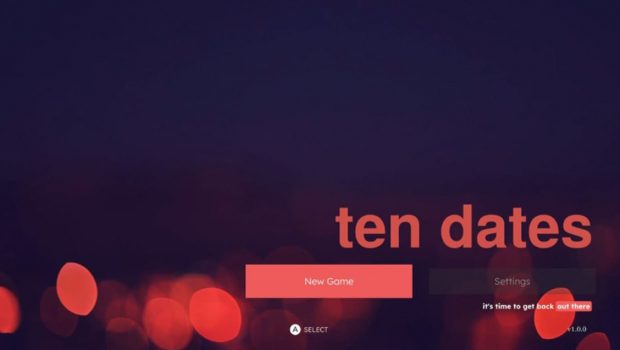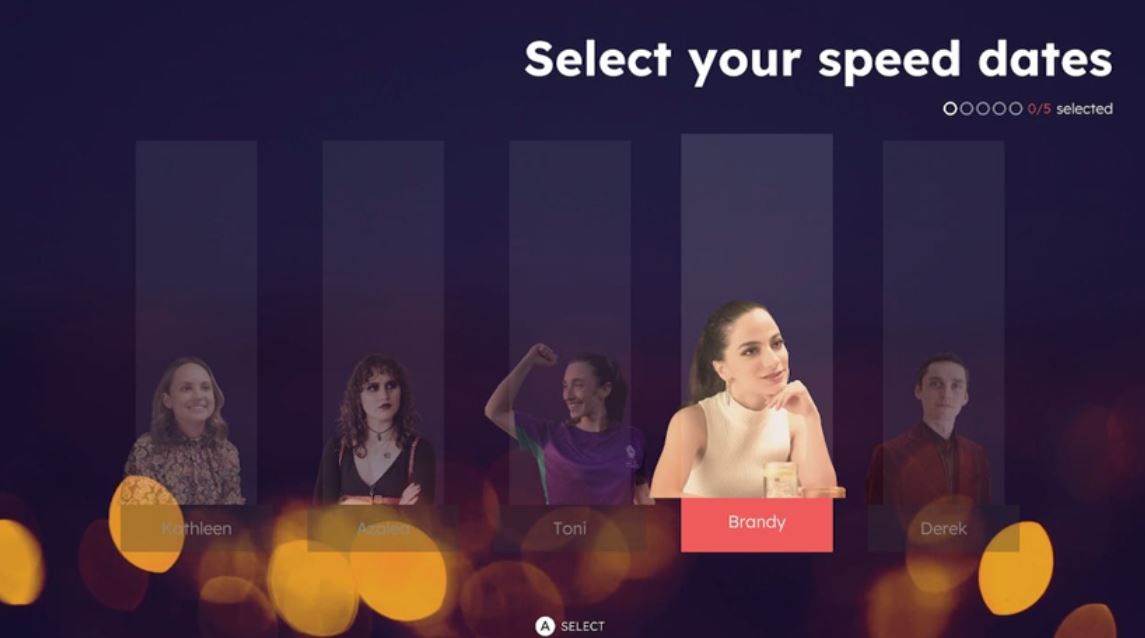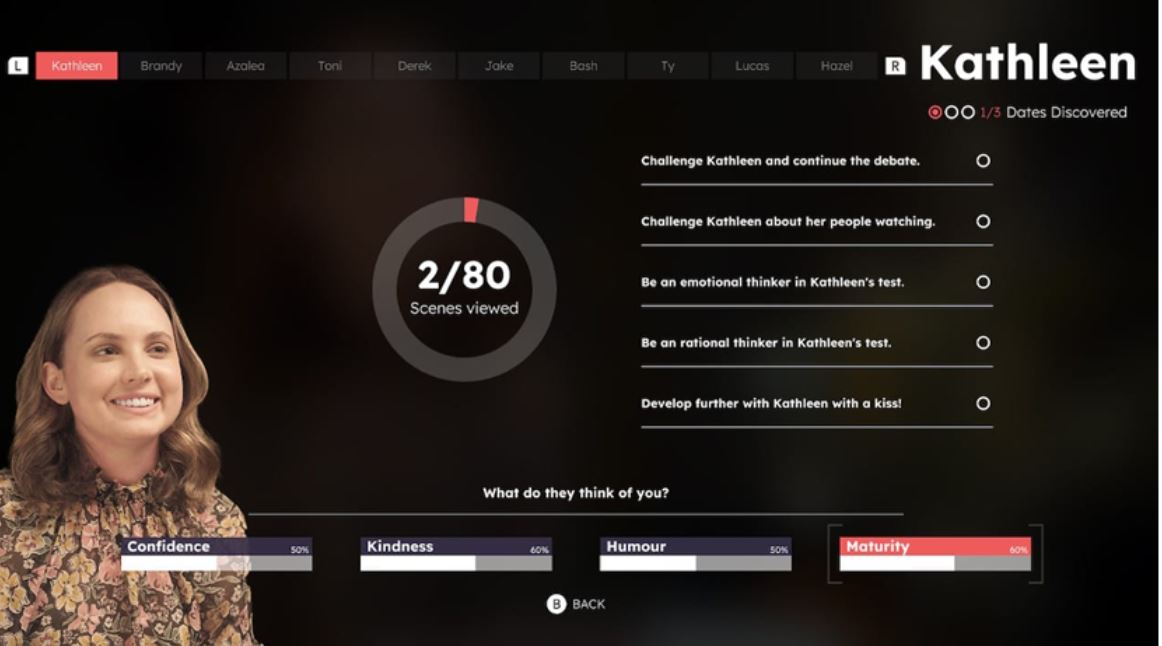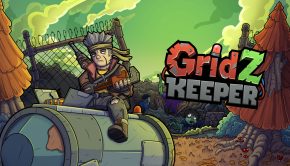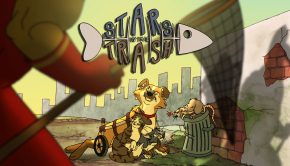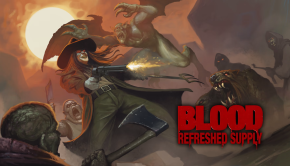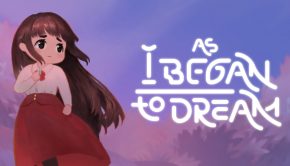Ten Dates Switch Review
Summary: Ten Dates is a charming exploration of human connection that is both strengthened and held back by mostly being an interactive movie.
3.6
Charming
After giving us Five Dates in 2020 – a game depicting the online dating experience of that time – Wales Interactive have returned with a sequel that, as the title suggests, not only doubles the content but also doubles as their opportunity to now explore in-person dates. Does Ten Dates leave me wanting more in a good way, or do me and the game lack chemistry? Let’s find out.
When the game starts you are given the option to play as either Ryan or Misha, two best friends living in London looking for love at a speed dating event. Each protagonist will speed date with five characters, go on a second date with two of those, then narrow it down to one for a third and final date. Whether or not you even make it to the second and third dates though, that all depends on the dialogue decisions you are forced to make during the conversations with your potential partners. The game will last around 2-3 hours if you only play as Ryan and Misha once – Ten Dates is therefore definitely meant to be played multiple times, because there is a lot of content you will miss out on otherwise. To help with that, you are allowed more freedom in your dating proceedings on subsequent playthroughs: you can choose which and how many of the first five dates you want to experience again and skip through scenes that you’ve already seen before.
If there is one thing that immediately stands out about Ten Dates, it’s the graphics. The story taking place in real locations featuring real actors already says a lot about the game and what it wants to be. There is no world to explore, no enemies to defeat, it is just people talking to each other. Ten Dates is thus more akin to an interactive movie – the only parts where you’re in control and actually playing the game are when it lets you make decisions on what the protagonist will do and/or say. And you only get a few seconds to choose an option during these moments, it is very immersive and fun. If you don’t like the stress though you can always enable “Streamer Mode” in the options menu, which pauses the game in those situations.
The best compliment I can give Ten Dates is that it has actual good writing. For a game with a premise like this it would be easy to mostly write “so bad it’s funny” type of dialogue and make that the reason why people want to play it, but no – the characters genuinely feel like real people, their conversations feel surprisingly authentic and there is a good balance of humorous and heartwarming moments. This is largely thanks to the actors’ performances – they inject the game with a lot of life and (British) charm, and are honestly the highlight of the game for me. It made it hard to notice the music, but I would say that’s actually a good thing. It performs its intended function well – underscoring the right occasions without distracting from the dialogue. And the themes that play during the few times where people are not talking (most notably the title screen track) have been stuck in my head even after I’ve stopped playing.
Now when you want to stop playing this game really depends on what kind of player you are. For someone like me that loves to absorb all of a game’s content, Ten Dates is both my favorite dream and my worst nightmare. The relationships menu and how it impacts the way you play the game is at the root of this feeling. This menu shows you every potential partner, a checklist of five events per character that you can make happen during a date with one of them, how much they currently like you in a certain aspect (such as kindness) and the number of scenes featuring them that you have watched compared to the number of scenes featuring them that exist in total. That total number of scenes is pretty high, and I love the fact that it is, but I would’ve appreciated a bit more convenience in my quest to see everything the game has to offer. While you can skip through scenes you’ve already seen as previously said, this also means you miss out on hearing the questions that are basically required in order to make decisions correctly – and making the wrong choice might mean not getting the next date and sending you back to the beginning. Need to make a choice at the very end of the final date, and want to see what happens if you pick the other option? You’re also starting from square one again, as there is no way to replay scenes or second/third dates during one playthrough.
As a result of this, my Ten Dates gameplay started to mostly devolve into quickly skipping through content I’ve already seen, while still having to pay attention during this skipping to both discover where I can even find the new content I’m looking for and also have the date go well enough so the next date gets unlocked in the first place. If the progress in the amount of scenes you’ve watched per character shown in the menu was broken up into the first, second and third dates instead of only showing the big total, that would’ve already helped in making this process a lot smoother and more fun. Those checklists I brought up earlier by the way? Some of them do not seem to work properly – I do exactly what the checklist asks me to do, but no checkmark. The subtitles have a few problems too – sometimes they don’t keep up perfectly and they’re also not always 100% accurate. Lastly, I actually got stuck in an infinite loop at one point where the game kept playing the same date over and over again no matter what I did, forcing me to restart. It is these unpolished spots and inconveniences that unfortunately bring Ten Dates down a bit as a full package.
In conclusion, if you prefer your games to be more conventional in its approach to being a game – then I wouldn’t recommend Ten Dates. It is just such an atypical gaming experience by almost all metrics. However, that uniqueness is also one of the game’s strengths: it uses the interactivity that only games can provide to explore relationships and the manners in which people connect with each other in a very entertaining way. So if the idea behind the game sounds fun to you, I think there’s definitely a pretty good chance that it will be.


